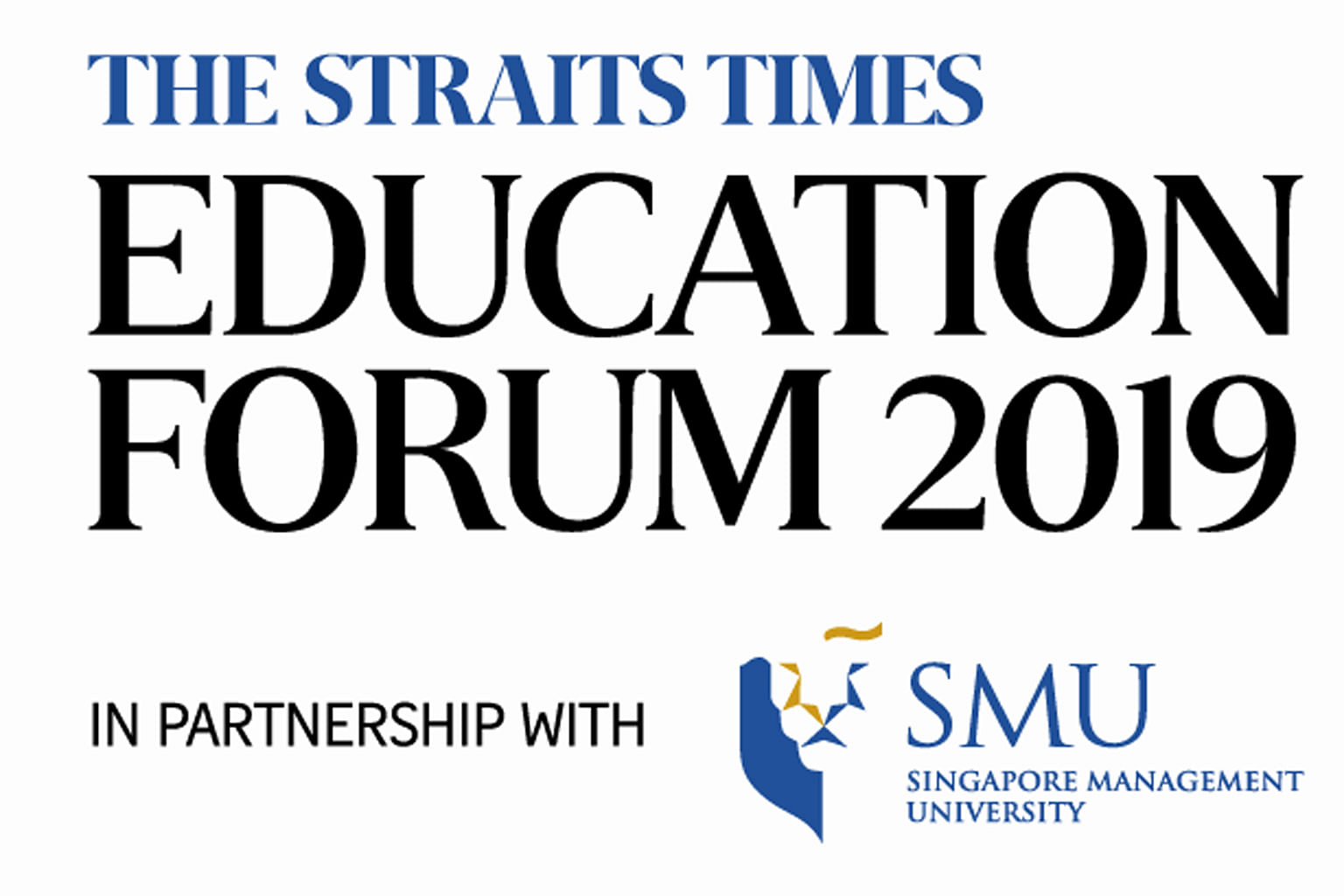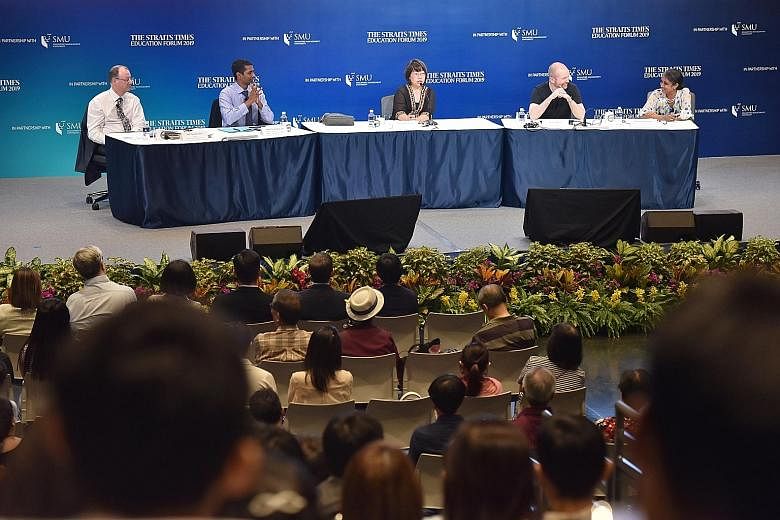With every click, Facebook users share photos, videos and bits of their day with their friends.
But not many know that the information is being "farmed" and sold to other companies.
This played a big part in the rigorous discussion at The Straits Times Education Forum yesterday on whether entrepreneurs today do more harm than good.
Held at the Singapore Management University (SMU) School of Law Building, it was the fourth edition of the forum organised by The Straits Times and supported by SMU. The debate was moderated by ST opinion editor Chua Mui Hoong.
Mr Aral Balkan, co-founder of Indie, a social enterprise striving for social justice in the digital age, argued that wealthy entrepreneurs these days are doing more harm because they "farm" information from users through surveillance and then sell the data. He called this "surveillance capitalism".
He said: "Facebook has two audiences - their users and their customers who pay them. They track everything that you do, store the data, analyse it continuously to create a profile of you, and monetise it with their customers... I also call this 'people farming'. They are factory farms for human beings."
"We need to think small, to think not about growth, but about 'de-growth'. This means small technology... for the common good, that is controlled by us, that respects human rights, efforts and experience and is ethically designed."
Taking his side was social entrepreneur Sumitra Pasupathy, the country head of Ashoka, a global organisation that promotes entrepreneurship for the greater good.
She said: "Businesses do harm when they're not considering the good for all."

Mr Balkan also cited the example of technology firm IBM, which was accused of collaborating with Nazi Germany to track concentration camps and prisoner data.
-
Doing good or not?
-
Q Looking at entrepreneurs ... can we say they are doing more harm than good?
A Mr Aral Balkan: Where is the investment going and where is it coming from? If we look at the environment today, 99.9 per cent of investment is going into the mainstream model. Venture capital is funding certain types of businesses. It doesn't invest in the sustainable business, but in the sale of the business - that is where they get the money back. We talk about start-ups but I wish we could talk about stay-ups and I wish that money is going into the good businesses.
Prof Timothy Clark: We need to de-centre our understanding of entrepreneurship. We are focusing on a very small number of organisations and individuals when there are many others making contributions to society.Q You (entrepreneurs) always begin on one end of the spectrum, the "do good" spectrum, but there will be a shift towards the "harm" end when you start thinking of ... scaling quickly, and when you meet capital providers that dilute your values as they dilute your equity. Entrepreneurs do good, capital providers do more harm than good.
A Ms Sumitra Pasupathy: (My enterprise) puts purpose over profit as a priority. It is incredibly important to redirect resources towards purpose-driven organisations.
Mr Balkan: Exponential scale does not end well in a finite system, but we can scale organically and horizontally if the idea is not to concentrate wealth and power in the hands of very few.Sue-Ann Tan
She added that entrepreneurs should be driven by purpose, have people as the priority and be supported by policies that promote good organisations through resources and capital.
But, taking issue with the motion, SMU associate professor of strategic management Reddi Kotha said that entrepreneurs were needed for society's development. He pointed out that governments could also interfere if monopolies hindered creativity and users themselves could choose to walk away from businesses they deemed harmful.
SMU provost Timothy Clark added that entrepreneurship is about creating innovation and seeing opportunities that are not there before. Economies will also continue to shift into knowledge-intensive sectors, where entrepreneurial creativity and agility are important in generating new ideas.
Although the debate began with over 70 per cent of the audience disagreeing with the motion, this shrank to 47 per cent at the end and the proposition won the argument.
The topic on entrepreneurs was chosen by The Straits Times senior education correspondent Sandra Davie.
Mr Warren Fernandez, editor-in-chief of Singapore Press Holdings' English/Malay/Tamil Media Group and editor of The Straits Times, said: "It is a provocative topic that we have chosen. It's playing out against the backdrop of what's going on out there... The tech companies have done enormous good for a lot of us but we are seeing some of the downsides at the moment, like privacy (issues)."
SMU president Lily Kong added: "I hope (these forums) contribute to thought leadership on the issues that impact society."
Ms Davie said the idea was to debate the issues surrounding modern-day entrepreneurship and to get young people to examine the issues up close.
She said: "The hope is that our future entrepreneurs will go on to develop better models that will truly benefit society."
The debate was streamed live on The Straits Times Facebook page.


